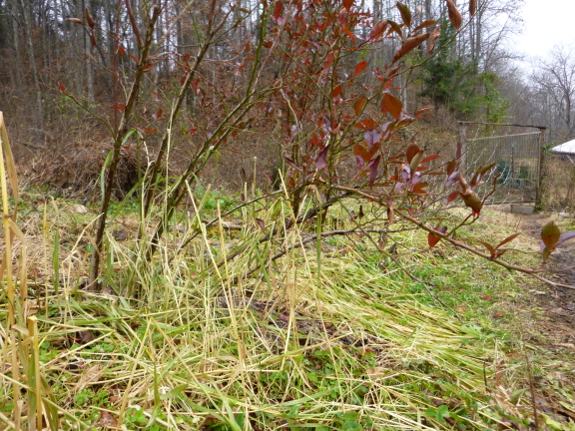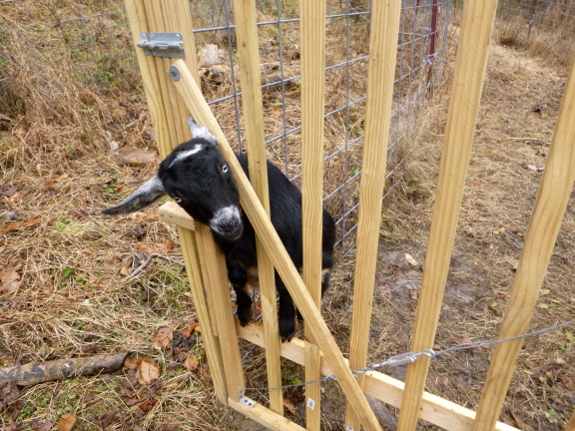
Improving our mulching system

Winter is a good time to
put more thought into systems within your homestead that need a little
tuneup. What do I mean by "systems"? Well, mulching is a good example.
In our garden, the advantages of a permanent mulch vastly outweigh the
disadvantages, but cost and time mean that I don't always keep the
ground fully covered. A good system would make mulch easier to come by,
ensuring that our garden soil stays in tip-top health.
Forest gardeners talk about chop 'n drop
as their primary mulching system, but in my own experience, the result
is a lot of work without fully covering the ground. In our wet climate,
halfway-mulched soil is almost worst than unmulched soil since weeds
come up through the mulch and you're stuck trying to rip out the former
without removing the latter. In drier regions, chop 'n drop might work,
but around here, we need a more serious mulching campaign.
For the annual garden, my favorite winter solution is a fall cover crop
of oats (or oilseed radishes if I want to plant into the ground in the
very early spring). So, this year, I decided to try the same thing in
our perennial beds. The photo at the top of this post shows the result,
which is good but not yet perfect. The flaw came about because the soil
around my blueberries was already partially mulched when I sprinkled oat
seeds onto the ground, so germination wasn't perfect, leaving me with a
partially-mulched situation. But the experiment is a good start, and
suggests that perhaps if I raked in the oat seeds when I planted them
rather than scattering the seeds on the soil surface (which seems to
work fine in the vegetable garden), then I might get better mulch
coverage around the perennials. The possible negative side effect that
I'd anticipated --- oats competing with the blueberries during the
growing season --- didn't seem to be a factor.

Goats are the other new addition to our mulching system. In the past, the manurey deep bedding
from our chicken coops has served as a partial mulch solution, but the
greater quantities coming from the goat coop should increase the amount
of garden area we can cover with this prime amendment. As an added
bonus, deep bedding acts as fertilizer as well as a weed suppressant,
which means we won't have to haul in as much off-farm manure this year.
Yet another system that I've been wanting to tweak....
Want more in-depth information? Browse through our books.
Or explore more posts by date or by subject.
About us: Anna Hess and Mark Hamilton spent over a decade living self-sufficiently in the mountains of Virginia before moving north to start over from scratch in the foothills of Ohio. They've experimented with permaculture, no-till gardening, trailersteading, home-based microbusinesses and much more, writing about their adventures in both blogs and books.
Want to be notified when new comments are posted on this page? Click on the RSS button after you add a comment to subscribe to the comment feed, or simply check the box beside "email replies to me" while writing your comment.
- Remove comment
- Remove comment
